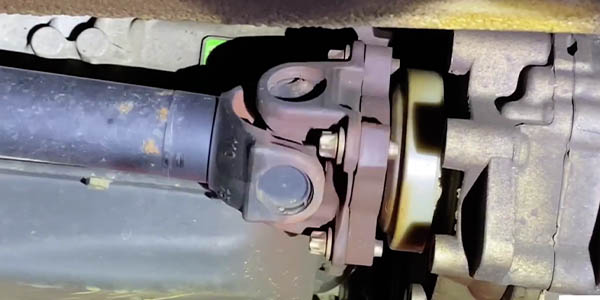broken drive shaft sound
Drive shaft noises and possible causes are as follows. The original shaft was too long so I had it shortened and it twisted it off at the weld.
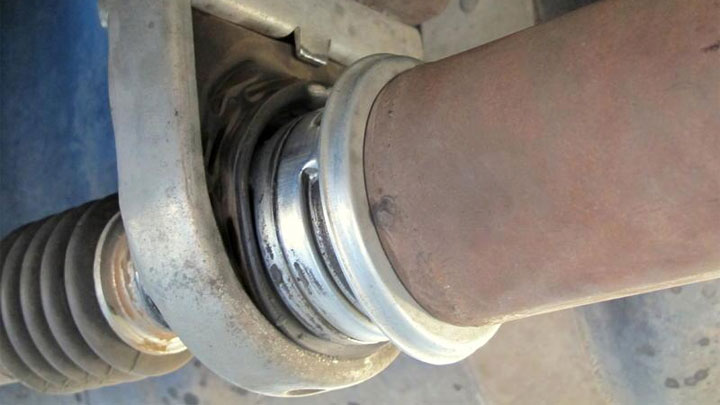
3 Causes Of Drive Shaft Noise When Turning Braking Or In Reverse
Drive shaft noises are usually caused by worn U- joints slip joint wear or a faulty center support bearing.

. Usually these squeaking sounds appear when there is a play in the bearings of the U joint. As you turn the steering wheel the ends of the shaft will wear unevenly causing the shaft to become thinner over time. Another symptom of driveshaft issues is loud clunking noises.
Drive shaft noises and possible causes are as follows. I had a broken driveshaft once. A worn drive shaft will manifests itself in the following symptoms.
Drive shaft noises and possible causes are as follows. A loose U-joint or bad center bearing within the driveshaft may cause the faltering acceleration. Locked it in to 4 wheel drive.
Is a broken drive shaft expensive to fix. It was right after I put the 500hp chevy 454 in the TA. Drive shaft are usually found between the gearbox and front wheels.
What does a broken driveshaft sound like. The joints become dry causing the rollers to wear. The ability of your driveshaft to rotate correctly is altered if your vehicle has a faulty u-joint.
This can lead to rubbing or pinching that can cause noise and vibration. The joints become dry causing the rollers to wear. If you have a rear wheel or four wheel drive car then the price of the broken drive shaft repair cost will be much higher.
You may hear a low squeaking sound that intensifies with increases in speed. Car shudders upon acceleration If you experience shuddering when accelerating from a stop or low speed a loose u-joint or bad carrier bearing could be to blame. The likely culprit is a worn u-joint.
Grinding and squeaking from the drive shaft is frequently caused by worn universal joints. This is mostly caused by the lack of lubrication that these bearings get. Grinding and squeaking from the drive shaft is frequently caused by worn universal joints.
The unlubricated damaged rollers then produce a grinding or squeaking sound as they operate on the scored cap and cross surfaces. Lack of u-joint lubrication can cause squeaking noises when you drive at low speeds. The sound may completely disappear when traveling at higher speeds and reappear as the vehicle decelerates.
Drive shaft noises and possible causes are as follows. Clunking sound when going from acceleration to deceleration or deceleration to acceleration may be caused by slip yoke problems. Grinding and squeaking sounds from the drive shaft are frequently caused by worn universal joints.
Luckily I was at. The joints become dry causing the rollers to wear. The joints become dry causing the rollers to wear.
Drive shaft noises are usually caused by worn U- joints slip joint wear or a faulty center support bearing. Got stuck in some moving sand in 2 wheel drive with the front end already out of the hole. With the constant twisting and harsh road conditions drive shaft problems are common for vehicle with mileage above 120000 kilometres.
Since there is no lube in them they will run dry and the metal will get into contact with other metal. Spoiled or torn drive shaft cover. Grinding and squeaking from the drive shaft is frequently caused by worn universal joints.
Hit the throttle and bang sounded like a 38 went off. Disturbing noises The U-joints are the most common point of failure in a driveshaft assembly. I cant believe the bearing inside my shaft just completely got demolished.
You may also hear sounds while the car is shuddering from the worn-out U-joint. They say its not dangerous and that I should leave it alone unless it starts to make a grinding sound at which time I should shell out 800 for a new drive shaft. Experienced my first major breakage this weekend.
What does a bad driveshaft sound like. 5 Dec 5 2013. A vehicle may emit noises if the drive shaft is bad.
Grinding and squeaking from the drive shaft is frequently caused by worn universal joints. Only show this user. Looks like it was sawed.
These noises are usually produced by worn-out u-joints. Bearings within U-joints allow the joint to move freely. These sounds mean that you need drive shaft repair.
Drive shaft noises are usually caused by worn U- joints slip joint wear or a faulty center support bearing. According to them the styrofoam inside of the drive shaft has broken loose and the squeakingchirping sound is that typical sound you hear from styrofoam when it rubs together. This is often the result of a severely damaged U-joint a part connected to the drive shaft.
Rear drive shaft broke clean as a whistle. If you hear a loud clunking noise when shifting your vehicle this is another sign of driveshaft damage. You can usually expect to pay between 320 and 750 for the average cost of the parts while the cost of the labor is between 150 and 190.
Experiencing a significant shudder when accelerating from low speed or a stopped position it can be another sign of failing driveshaft components.

4 Causes Of Drive Shaft Noise When You Turn Brake Or Reverse

Top 3 Drive Shaft Problems And How To Identify It Yourself D S Auto
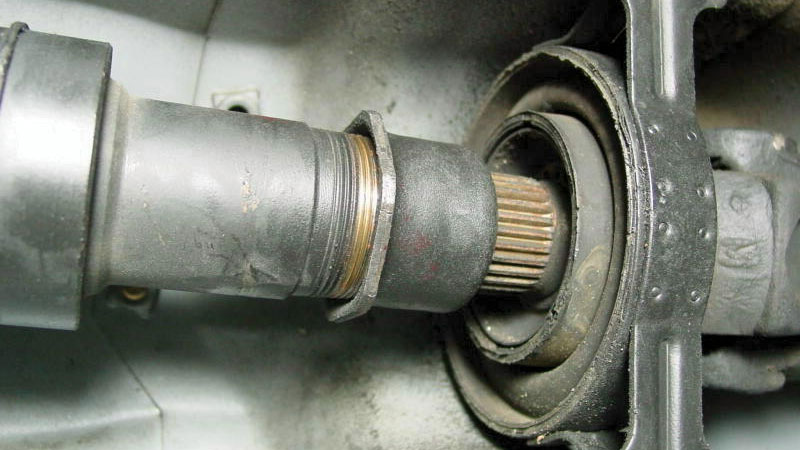
4 Causes Of Drive Shaft Noise When You Turn Brake Or Reverse

Top 3 Drive Shaft Problems And How To Identify It Yourself D S Auto

Diagnosing And Servicing Driveline Noises Know Your Parts
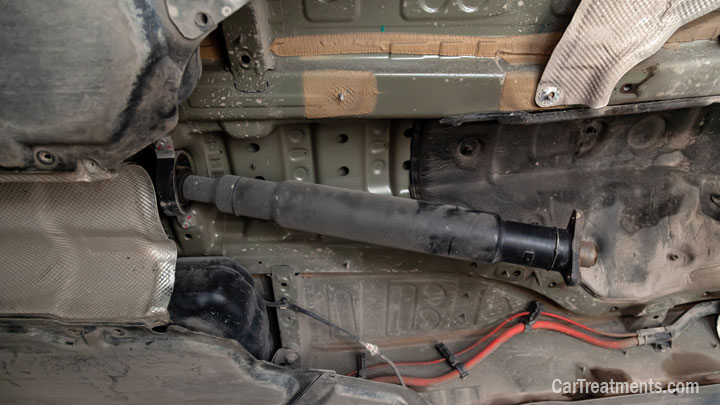
3 Causes Of Drive Shaft Noise When Turning Braking Or In Reverse
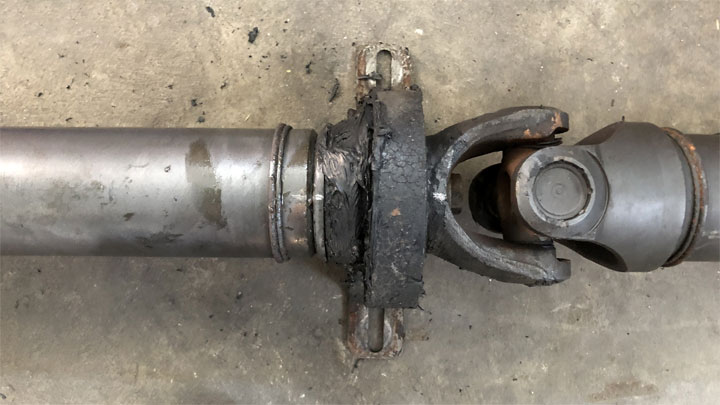
6 Symptoms Of A Bad Driveshaft And Replacement Cost In 2022
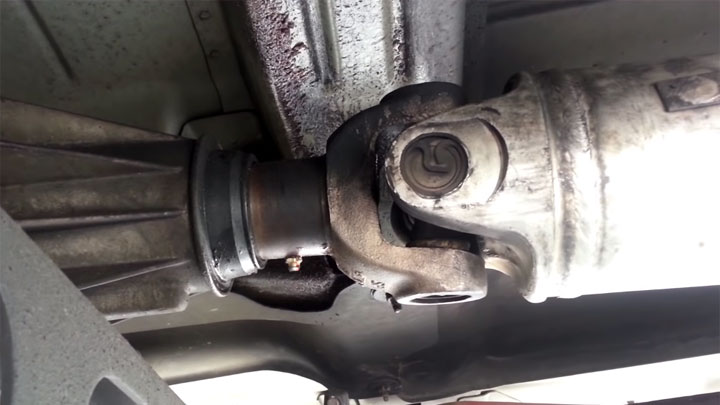
3 Causes Of Drive Shaft Noise When Turning Braking Or In Reverse
